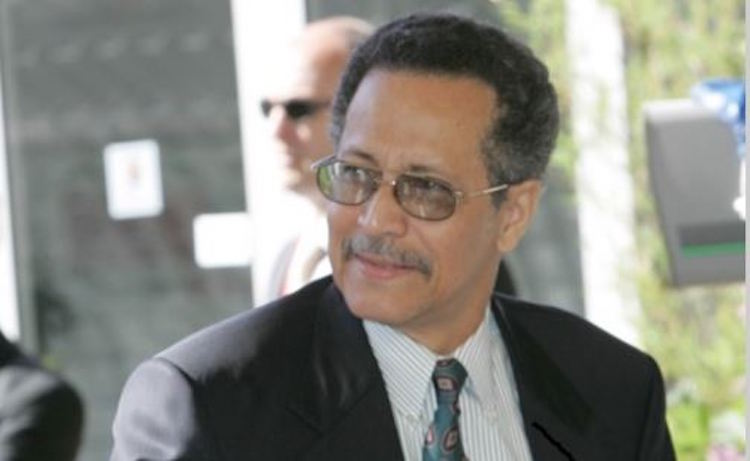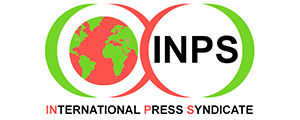
By Dr Patrick I. Gomes, ACP Secretary-General
Following are extensive excerpts from a statement by the Secretary-General of the African, Caribbean and Pacific Group of States (ACP) at the high-level Conference – titled ‘Sixty Years and Beyond: Contributing to Development Cooperation’ – in Rome on 27 April 2017 to mark the 60th anniversary of the Treaties of Rome. – The Editor
BRUSSELS (IDN-INPS) – The Treaties of Rome provided the historic foundations that enabled the fatal conflicts of war to be overcome by the spirit of peace and solidarity for the common good of all Europeans. Among the most undeniable success of the Treaties of Rome is the European Integration Project with its four freedoms – of goods, capital, services and people. We can together rightly celebrate one of the greatest landmarks of the post World War II era.
We are proud to convey the ACP’s appreciation and gratitude for the long history of the cooperation that began in 1963 with the Yaoundé 1 Convention and those 18 African States that included Somalia and Madagascar and shared in an initial allocation from the European Development Fund (EDF).
In the bosom of that partnership, the ACP’s commercial and political strength had grown from 18 to 46 in 1975 by embracing countries of the Caribbean and the Pacific in the Lomé Agreements. And now we are 78 countries in the current Cotonou Partnership Agreement that ends in 2020.
The role and commitment of the EU Member-States and the European Institutions in contributing towards the eradication of poverty and the gradual integration of the ACP economies into the world economy are among the most notable driving forces for development in the ACP countries.
Despite the challenges of today’s market economies, and their turbulence and uncertainty, the principles and architecture for integration and common rules, remain ever more relevant. This endurance is grounded in shared values, respect for human rights and the rule of law but also responsive to new needs and legitimate aspirations.
The year 2017 marks not only the 60th anniversary of the signing of the Treaties of Rome, but also the 42nd anniversary of trade, economic and political cooperation between Europe and the ACP Group of States.
Through these joint undertakings, great strides have been made by which an accumulation of knowledge, experience and institutional innovation are brought to bear in the fight for a world free of poverty and engaged in sustainable development for all.
Beyond North-South Cooperation
The successive revisions of the Cotonou Agreement in 2005 and 2010 introduced new elements and flexibilities which have enhanced its effectiveness thus earning the admiration and recognition of the partnership as one that takes us beyond North-South Cooperation.
Our partnership has been modernised over the time from 1975 to now. Progressive amendments have been made and its scope widened to new areas of cooperation such as accompanying measures for losses in agricultural export revenue (Lomé I, STABEX), mining sector and ACP commodity protocols (Lomé II, SYSMIN) self-sufficiency and food security (Lomé III), (human rights, environment, private sector, and regional cooperation (Lomé IV and IV revised).
Thus the Cotonou Agreement is the culmination of five generations of agreements based on trade and economic cooperation with a financial protocol within a political framework. It is an investment and an embodiment of human and organisational capital accumulation that bring a comparative advantage to global governance. This has been effectively demonstrated in contributing to the successful 2015 UN Framework Convention on Climate Change and has continued in 2016 in Marrakech for implementation of the Paris Agreement.
The achievements or the acquis of this partnership can only be understood by reference to the following basic principles:
First, common objectives and principles, shared in a legally binding framework;
Secondly, the capacity of both sides to adapt to international challenges and meet their respective needs over the years, as they did in the face of the geopolitical developments resulting from the end of the Cold War; and
Thirdly, an appropriate financial framework based on the predictability of resources to finance development programmes and projects, by co-management and mutual accountability.
Resource predictability is a critical, and determining factor in the medium to long-term programming for sustainable economic and social development.
Building on those principles, ACP-EU relations have been strengthened and deepened in other areas of mutual interest, such as promoting democracy, combating food and energy security, improving competitiveness of enterprises, both public and private, and endorsing the Paris Principles on aid effectiveness in the interest of both parties.
Furthermore, the political dimension of the partnership has been enhanced, by the introduction of the concept of good governance, as applicable to all member states of the ACP and of the EU.
The concern to be inclusive
The expanded remit of the Cotonou Agreement, by revisions of 2010, includes stakeholders from civil society, the private sector, and parliaments, as authentic participants in programming and practice of development cooperation. This marks the concern to be inclusive by extending the ownership of the cooperation to non-state actors.
This longstanding, tested and proven ACP-EU cooperation has witnessed a pattern of progressive changes and improvement to the structure of development cooperation instruments and dynamic ways to finance development.
These have not been achieved without differences in points of view and rigorous questioning of whose interests and benefits are being adequately served. But mutual trust and a common commitment in the fight against poverty provide a consensus for joint action.
The changes that ensure financial resources are targeted at specific sectors or focus areas make it possible to assess the impact and results in achieving the desired goals of sustainable development.
To us in the ACP, all resources that are provided as development assistance must serve the needs of the citizens in our countries and be accountable to the public of our partner countries.
A principle that differentiates among developing countries, in terms of need, geography or ecology must also acknowledge, that gains attained by sound management, deserve incentives to continue to do better than to relapse into conditions from which some countries have arisen.
While a principle of differentiation emphasises the value and importance of channelling resources where they are most needed, it creates a structural challenge for Middle Income Countries (MICs), as they face the trap of reverting to high indebtedness and economic stagnation. The ACP is utilising innovative mechanisms of blending and concessionary finance for public-private partnerships in the search for solutions.
Development finance will readily continue to be responsive to the needs and priorities of the ACP countries at national, regional and Intra-ACP levels with emphasis on subsidiarity and complementarity so that development cooperation can be effective.
More than merely meeting the basic needs
The Addis Ababa Action Agenda (AAAA), the 2030 Agenda and the 17 SDGs and the Paris Declaration on Climate Change set the framework for the ACP Group and EU to commit to ensuring that peoples in respective countries can gain more than merely meet their basic needs. Rather, policies and strategies are to be participatory and inclusive. This must afford structural conditions for a decent life in peace and secure environments for our citizens by translating into deeds that no one, no child and no woman is left behind.
ACP-EU relations are at the crossroads with the Cotonou Partnership Agreement coming to an end in 2020 and the need to redefine this partnership.
For the ACP Group, the successor agreement should be legally binding and built on the acquis of its predecessors (Lome Convention and Cotonou Partnership Agreement) but highly relevant to the 21st century. In this regard, the ACP also welcomes the new European Consensus on Development. It is particularly valuable in reflecting the thinking that emphasises partnership – not donors and recipients – and policy coherence for development.
More importantly for the ACP is to pursue our discourse and policies in the context of the SDGs and the Addis Ababa Action Agenda. This must translate to the ownership of policies by our member states and the structural transformation of their economies ably assisted by a complement of financing mechanisms.
Mutually reinforcing strategic pillars
In this regard, the ACP has identified mutually reinforcing strategic pillars in which Trade, investment, services and industrialisation as one pillar is linked to development cooperation, not only for financial resources but also technology, research and innovation.
We welcomed the UN’s establishment of a technology facilitation mechanism in the Addis Ababa Action Agenda. This will mean enhancing value addition of natural resources and moving into global value chains.
In this way, trade and investment beyond extraction of raw materials, are a basis for manufacturing and services. There is great scope to accomplish this through capacity building and learning from, and sharing experiences with Europe, which thereby gives the new partnership the orientation to end aid dependency.
The ACP-EU development cooperation, conscious of the changes that have taken place over the last 60 years looks to a future with fundamental changes in thinking and practice but building on a heritage of genuine partnership between a changing Europe and a reinvented and repositioned ACP.
Much has been achieved but we look towards what is qualitatively better in the next 60 years! [IDN-InDepthNews – 2 May 2017]
Photo: ACP Secretary General Dr. Patrick I. Gomes.
IDN is flagship agency of the International Press Syndicate
facebook.com/IDN.GoingDeeper – twitter.com/InDepthNews

